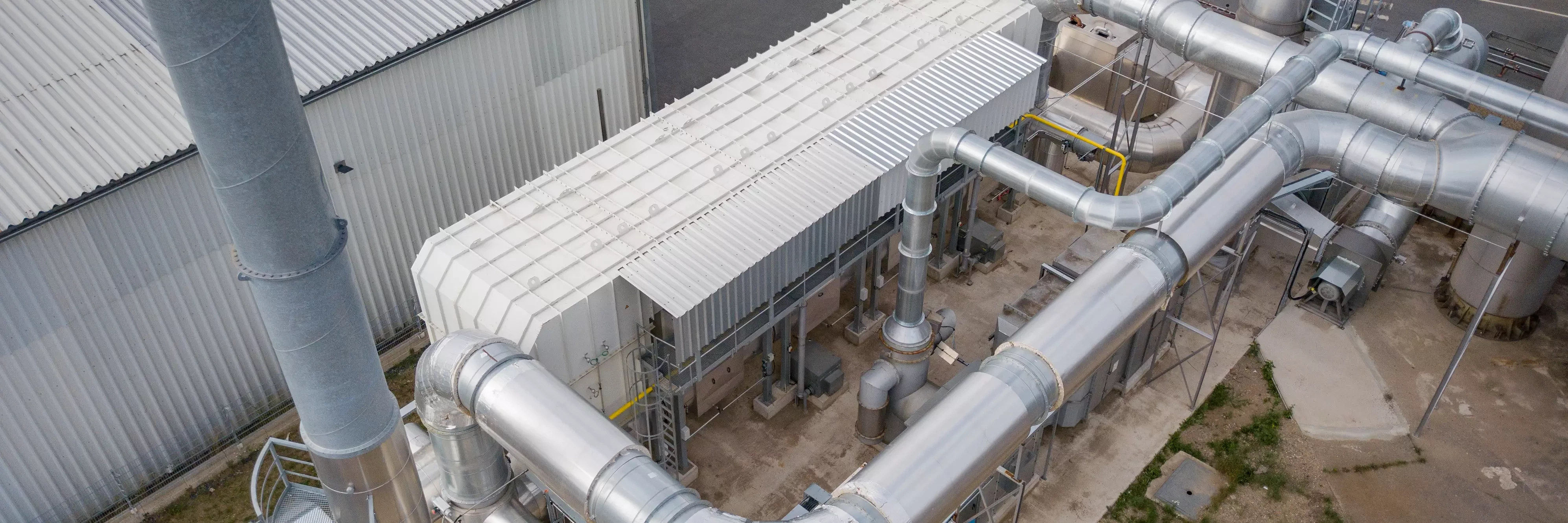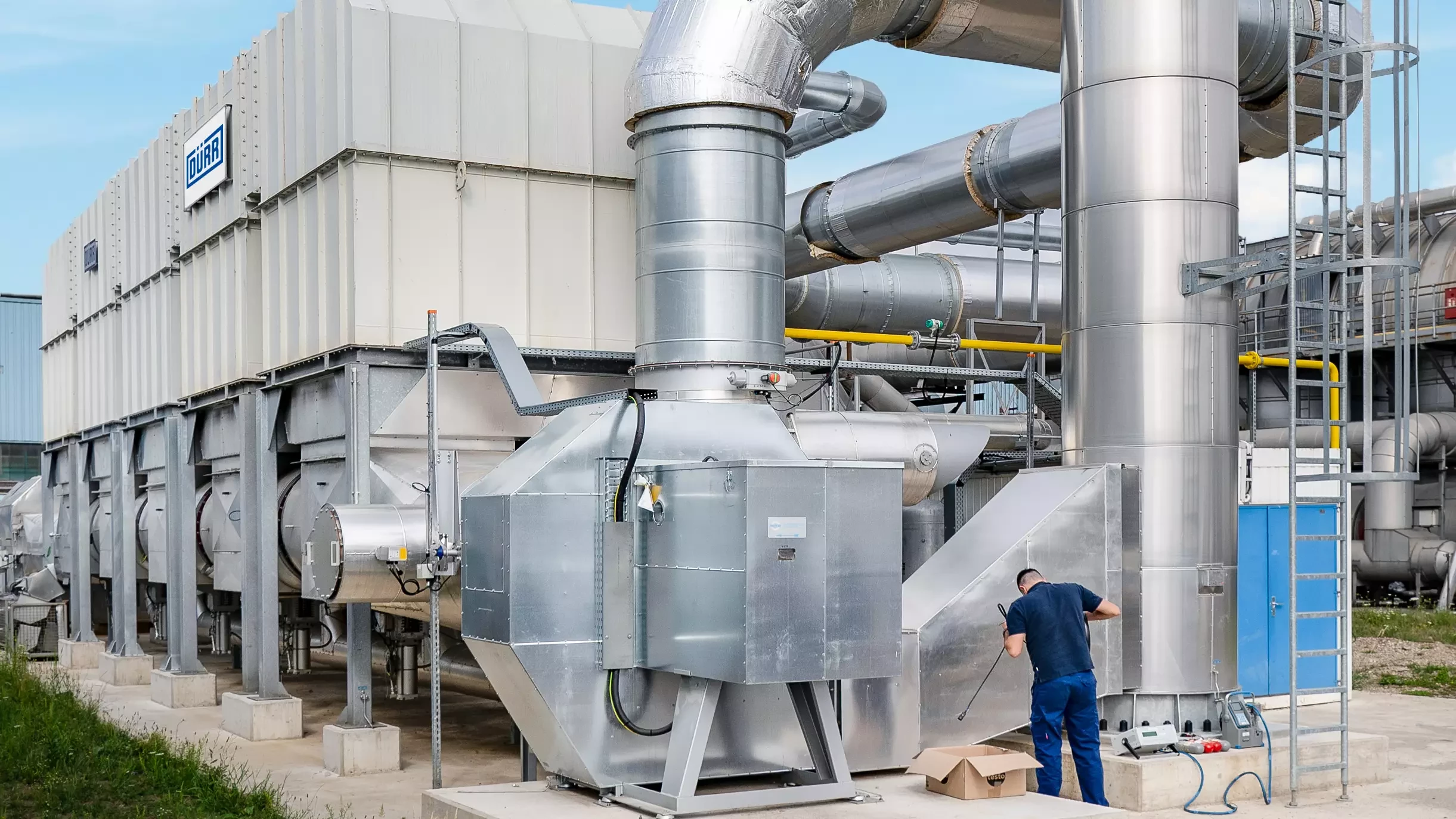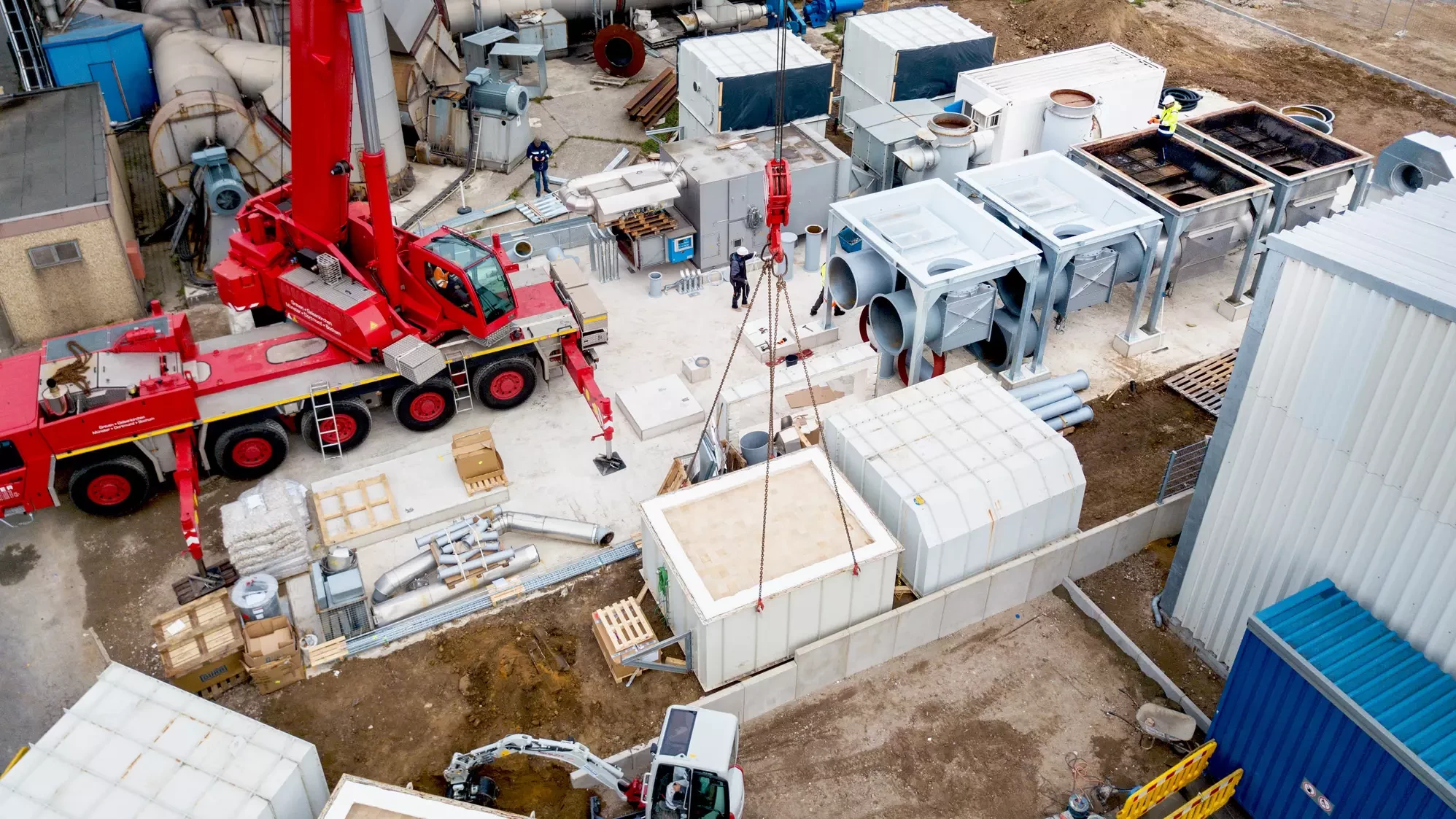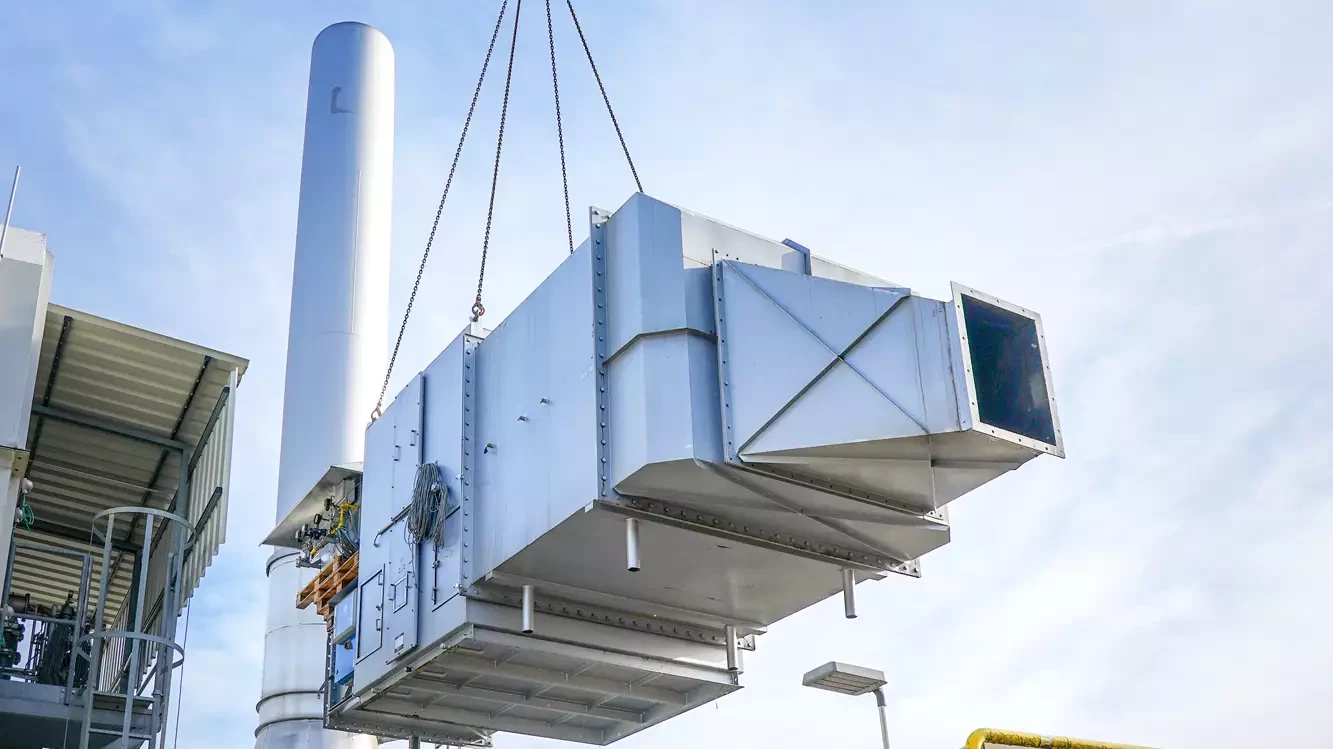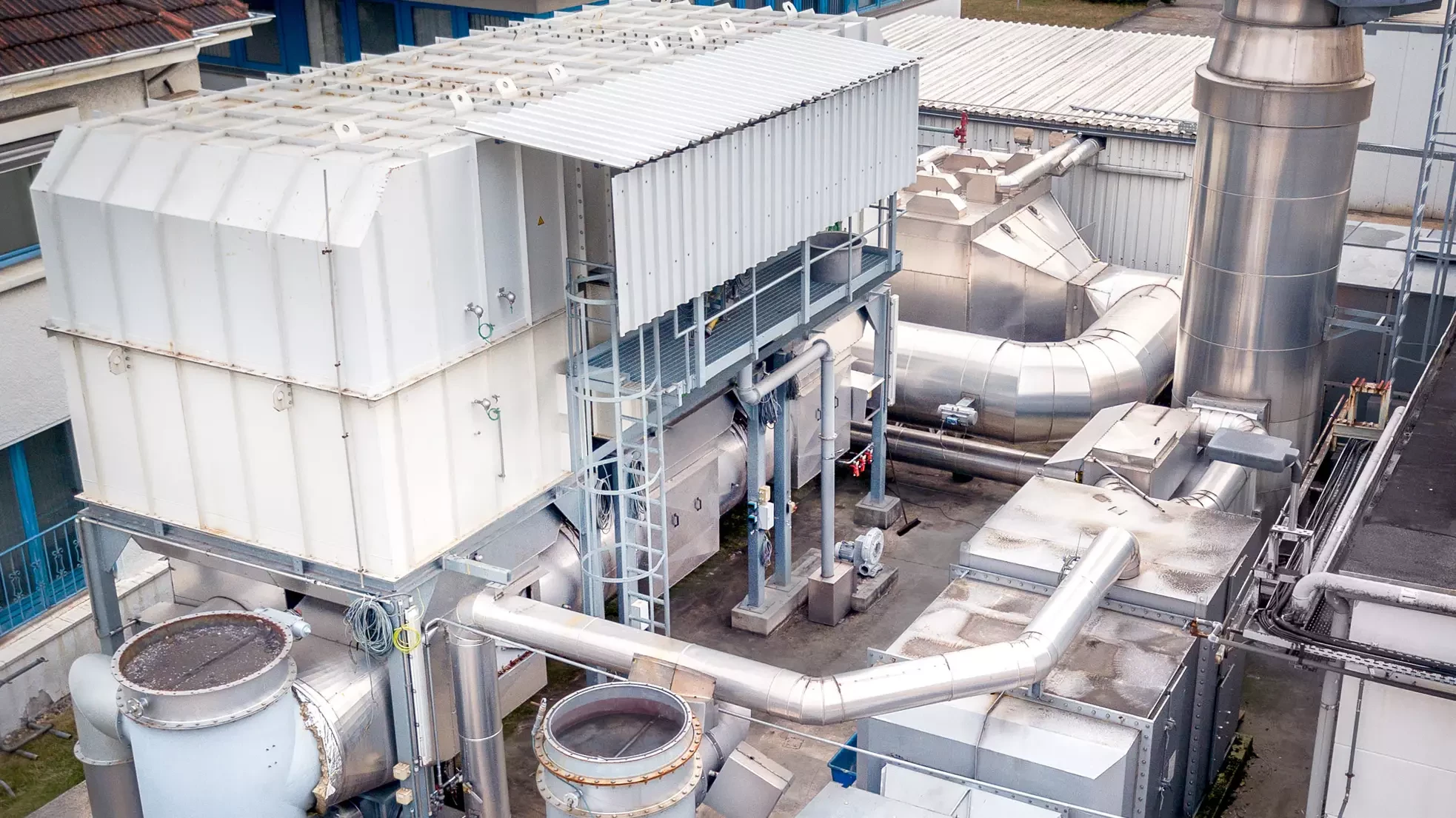A move is always challenging, and even more so when the item in question is a complete regenerative thermal oxidizer (RTO) air pollution control system with three towers rated for 75,000 m³/h of exhaust air. 60 metric tons of technology had to be transported from the old site to the new one in more than 20 truckloads, with a police escort required in some cases due to an excess width of up to 3.5 meters. However, it was all worth it: by reusing the existing components, Ball Beverage Packaging ended up with a modern five-tower system for a total of 110,000 m³/h of exhaust air. The costs are much lower than for an equivalent new system. And on top of this, the beverage can manufacturer still has a capacity buffer for the future.
Achieving high removal efficiency without any energy waste
As in many industrial processes, the manufacture of beverage cans produces solvent-laden exhaust air. The cans made from metal are coated on the inside and the outside. The majority of the solvents contained in the coatings are emitted with the exhaust air when the coatings are cured in the hot air dryer. Ball operated regenerative thermal oxidizers (RTO) at its two sites in Gelsenkirchen and Recklinghausen, both in Germany. This highly sustainable technology, which is particularly suitable for large quantities of solvent-laden or odorous exhaust air, oxidizes the organic pollutants almost completely. What’s more, RTO systems require much less primary energy than other air pollution control methods since over 95% of the energy consumed is recovered in the internal heat exchange media and the energy contained in the hot exhaust gases is used to preheat the exhaust air. The systems work autothermally above a pollutant concentration of approx. 1.5 g/Nm3, in other words no external fuel is required to operate the system.
Extensive modernization as a turnkey project
The air pollution control system in the Recklinghausen plant had only been in operation for four years when Ball decided to vacate the site and instead significantly expand the Gelsenkirchen site. However, the system used there for air pollution control was a very old RTO system that was not energy efficient. “We had the option to combine the company’s existing system with new components, and by so doing update the air pollution control system to the state of the art with minimum financial outlay and also customize it to the needs of an expanding site,” explains Rolf Schäfer, the responsible project manager at Dürr in the Clean Technology Systems division. Dürr was assigned to develop a concept for extending the existing three-tower system by another two towers, and to act as general contractor for the project. This included dismantling the existing system in Recklinghausen, organizing the transport, assembling the old parts and new components for the expansion, installing a new control system with adapted safety technology, putting the modernized RTO into operation at the new site in Gelsenkirchen, and setting it up as required for production there.
Cost savings of up to 30 percent
In the first stage of the project, the Dürr engineers took stock of the existing system and defined the technical prerequisites for a functionally reliable and economical upgrade to the higher manufacturing volume. “A system modernization of this kind really pays off for clients. They can save up to a third of the costs they would otherwise have to pay for a new system,” explains Rolf Schäfer.
Reconnected in just two days
The concept realized at Ball Beverage Packaging includes a lot of detailed engineering aimed at ensuring that the two new tower elements, including associated combustion chamber parts, fit seamlessly into the existing system. “Any system expansion starts with the existing system, and everything needs to be oriented towards it. Let’s look at the example of the inflow to the pipelines: the existing diameters were too small for the new capacity requirements, and structurally could not be enlarged either. So we designed an alternative and now have inflow coming from two ends,” explains Rolf Schäfer.
A particular challenge was the tight schedule, which allowed just six months to get everything up and running. Also extremely short was the manufacturing shutdown of just two days for the necessary reconnection, where the RTO at the new site in Gelsenkirchen was connected to the existing pipeline system. Ball Beverage Packaging is pleased with the new air pollution control system, which has been in use in Gelsenkirchen since May 2019: “The system went into operation without any complications, and has been running very reliably since then,” confirms Ilja Hober, project manager at Ball Beverage Packaging. An additional benefit is that only three quarters of the doubled capacity is being used at the moment, which means that Ball still has enough leeway for further growth.
